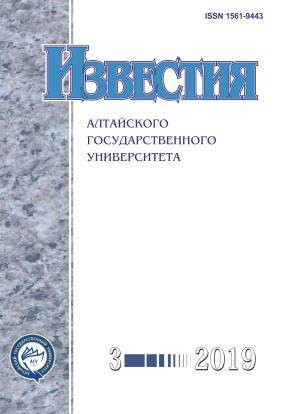The Position of the Soviet Leaders about Instructors and Specialists in Mongolia in the Period of National Democracy and Left Experiment (1926-1932)
Abstract
This article analyzes the Soviet policy in Mongolia using organization of work with personnel as an example: instructors and experts were sent to Mongolia in the early period of socialistic modernization of the state. As long as instructors were the main executives of the Soviet policy the situation required a clear distinction of responsibilities and authorities with the local Mongolian staff during the work and, at the same time, an implementation of Soviet plans in political and economic spheres. All organizational matters were supervised by a special commission organized by the Politburo of the Central Committee of the All-Union Communist Party of the Bolsheviks, Comintern employees, a Soviet trade representative in Mongolia, and Mongolian government.
The documents show a firm policy aimed to restraint "colonialist attitude" of Soviet specialists. The legal basis which regulated main functions of the expert group was signed in 1934 in a form of special agreement between the USSR and Mongolian People's Republic governments. Those agreements remained relevant in organizing Soviet labor migration to Mongolia during the second half of the 20th century.
Downloads
Metrics
References
Рощин С.К. Политическая история Монголии (1921-1940). М., 1999.
История Монголии. XX век / отв. ред. Г. С. Яскина. М., 2007. Гл. 2.
Родионов В.А. Россия и Монголия: новая модель отношений в начале XXI в. Улан-Удэ, 2009.
Родионов В.А. Политическая трансформация Монголии в социалистический период: от традиции к модерну // Теория и практика общественного развития. 2014. № 17.
Дьяченко Н.В. «Советские войска» в Монголии во второй половине 1960-х — 80-е гг. (по воспоминаниям советских военных) // Олон улсын Монголч Эрдэмтнийн X их хурлын илтгэлүүд. I боть. Түүхийн Өмнөх үе болон түүхэн үеийн монгол ба гадаад ертөнц (Доклады X международного конгресса монголоведов. I том. Монголия в доисторический и исторический периоды и внешний мир). Улаанбаатар, 2012.
Российский государственный архив экономики. Ф. 7590. Оп. 3. Д. 68.
Монголия в документах Коминтерна (1919-1934). Ч. I (1919-1929). Улан-Удэ, 2012.
Российский государственный архив социально-политической истории (РГА СПИ). Ф. 17. Оп. 162. Д. 6.
РГАСПИ. Ф. 495. Оп. 152. Д. 119.
Из соглашения между правительствами СССР и МНР о советниках, инструкторах, специалистах 1934 г. // Советско-монгольские отношения. 1921-1966 : c6. документов. М., 1966.
Radchenko S. New Documents on Mongolia and the Cold War // Cold War International History Project Bulletin, Issue 16. Woodrow Wilson Center. Washington, 2008.
Izvestiya of Altai State University is a golden publisher, as we allow self-archiving, but most importantly we are fully transparent about your rights.
Authors may present and discuss their findings ahead of publication: at biological or scientific conferences, on preprint servers, in public databases, and in blogs, wikis, tweets, and other informal communication channels.
Izvestiya of Altai State University allows authors to deposit manuscripts (currently under review or those for intended submission to Izvestiya of Altai State University) in non-commercial, pre-print servers such as ArXiv.
Authors who publish with this journal agree to the following terms:
- Authors retain copyright and grant the journal right of first publication with the work simultaneously licensed under a Creative Commons Attribution License (CC BY 4.0) that allows others to share the work with an acknowledgement of the work's authorship and initial publication in this journal.
- Authors are able to enter into separate, additional contractual arrangements for the non-exclusive distribution of the journal's published version of the work (e.g., post it to an institutional repository or publish it in a book), with an acknowledgement of its initial publication in this journal.
- Authors are permitted and encouraged to post their work online (e.g., in institutional repositories or on their website) prior to and during the submission process, as it can lead to productive exchanges, as well as earlier and greater citation of published work (See The Effect of Open Access).








